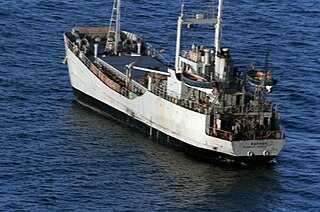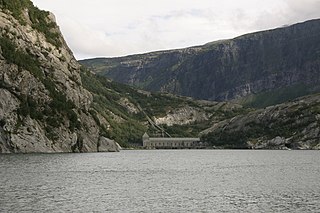 W
WThe Gulf War, codenamed Operation Desert Shield for operations leading to the buildup of troops and defense of Saudi Arabia and Operation Desert Storm in its combat phase, was a war waged by coalition forces from 35 nations led by the United States against Iraq in response to Iraq's invasion and annexation of Kuwait arising from oil pricing and production disputes.
 W
WIran Ajr, formerly known as the Arya Rakhsh, was a Japanese-built landing craft used by Iran to lay naval mines during the Iran–Iraq War. Built in 1978, the 614-ton, 54-meter ship was powered by two diesel engines and featured a bow ramp for unloading cargo. She was scuttled in 1987.
 W
WA low-intensity conflict (LIC) is a military conflict, usually localised, between two or more state or non-state groups which is below the intensity of conventional war. It involves the state's use of military forces applied selectively and with restraint to enforce compliance with its policies or objectives.
 W
WOperation Musketoon was the codeword of a British–Norwegian commando raid in the Second World War. The operation was mounted against the German-held Glomfjord power plant in Norway from 11 to 21 September 1942.
 W
WOperation Inherent Resolve (OIR) is the U.S. military's operational name for the military intervention against the Islamic State of Iraq and Syria, including both the campaign in Iraq and the campaign in Syria, with a closely-related campaign in Libya. Since 18 September 2018, the U.S. Army's III Armored Corps has been responsible for Combined Joint Task Force – Operation Inherent Resolve (CJTF—OIR). The campaign is primarily waged by American air forces in support of local allies, most prominently the Iraqi security forces and Syrian Democratic Forces. Combat ground troops, mostly special forces and artillery, have also been deployed, especially in Iraq. 75-80% of the airstrikes have been conducted by the military of the United States, with the other 20-25% by the United Kingdom, France, Turkey, Canada, the Netherlands, Denmark, Belgium, Saudi Arabia, the United Arab Emirates, and Jordan.
 W
WThe 2003 invasion of Iraq was the first stage of the Iraq War. The invasion phase began on 19 March 2003 (air) and 20 March 2003 (ground) and lasted just over one month, including 26 days of major combat operations, in which a combined force of troops from the United States, the United Kingdom, Australia and Poland invaded Iraq. This early stage of the war formally ended on 1 May 2003 when U.S. President George W. Bush declared the "end of major combat operations", after which the Coalition Provisional Authority (CPA) was established as the first of several successive transitional governments leading up to the first Iraqi parliamentary election in January 2005. U.S. military forces later remained in Iraq until the withdrawal in 2011.
 W
WOperation Nemesis was a covert operation and an assassination campaign by the Armenian Revolutionary Federation (Dashnaktsutyun) carried out between 1920 and 1922, during which a number of former Ottoman political and military figures were assassinated for their role in the Armenian Genocide, as well as Azerbaijani figures for the 1918 massacre of Armenians in Baku. Shahan Natalie and Armen Garo are considered its masterminds. It was named after the Greek goddess of divine retribution, Nemesis.
 W
WOperation Northern Lights was a joint U.S-Iraqi operation. It Consisted of approximately 1,400 personnel with a mission to disrupt anti-Coalition forces and to find and destroy rebel caches in the Abu Ghraib area west of Baghdad, Iraq.
 W
WThe War on terror, also known as the Global War on Terrorism and U.S. War on Terror, is an international military campaign launched by the United States government after the September 11 attacks. The targets of the campaign are primarily Sunni Islamic fundamentalist armed groups located throughout the Muslim world, with the most prominent groups being Al-Qaeda, the Islamic State, the Taliban, Tehrik-i-Taliban Pakistan, and the various franchise groups of the former two organizations. The naming of the campaign uses a metaphor of war to refer to a variety of actions that do not constitute a specific war as traditionally defined. U.S. president George W. Bush first used the term "war on terrorism" on 16 September 2001, and then "war on terror" a few days later in a formal speech to Congress. In the latter speech, George Bush stated, "Our enemy is a radical network of terrorists and every government that supports them." The term was originally used with a particular focus on countries associated with al-Qaeda. The term was immediately criticised by such people as Richard B. Myers, chairman of the Joint Chiefs of Staff, and more nuanced terms subsequently came to be used by the Bush administration to publicly define the international campaign led by the U.S. While it was never used as a formal designation of U.S. operations in internal government documentation, a Global War on Terrorism Service Medal was issued.